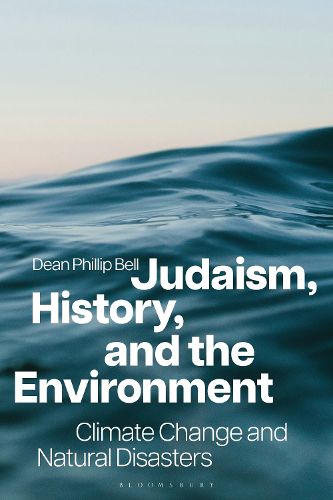Readings Newsletter
Become a Readings Member to make your shopping experience even easier.
Sign in or sign up for free!
You’re not far away from qualifying for FREE standard shipping within Australia
You’ve qualified for FREE standard shipping within Australia
The cart is loading…






Engaging creatively with Jewish texts and history, this book explores the interplay between history, Judaism, and the environment through the prism of natural disasters. Historical case studies include earthquakes in Georgian England, floods and fires in 18th-century Germany, plague in 17th-century Italy, and natural disasters experienced by Jews living in the Ottoman Empire.
Rather than seeing religion as a stumbling block or as a cause of environmental degradation, these historical cases are instead brought into conversation with related classical Jewish texts and contemporary Jewish thought. Unlike studies that interpret religious texts through traditional hermeneutical lenses, this book is distinctly interdisciplinary, contributing significantly to the fields of Jewish studies, religious studies, ecology, and environmental humanities.
Chapters explore new ways to think about contemporary environmental concerns, discussing the Anthropocene, causality and temporality, global and local contexts, and proscription. Dean Phillip Bell's timely and important argument demonstrates how a new engagement with Jewish history and thought may help us to grapple with the environmental challenges of today and the future.
$9.00 standard shipping within Australia
FREE standard shipping within Australia for orders over $100.00
Express & International shipping calculated at checkout
Stock availability can be subject to change without notice. We recommend calling the shop or contacting our online team to check availability of low stock items. Please see our Shopping Online page for more details.
Engaging creatively with Jewish texts and history, this book explores the interplay between history, Judaism, and the environment through the prism of natural disasters. Historical case studies include earthquakes in Georgian England, floods and fires in 18th-century Germany, plague in 17th-century Italy, and natural disasters experienced by Jews living in the Ottoman Empire.
Rather than seeing religion as a stumbling block or as a cause of environmental degradation, these historical cases are instead brought into conversation with related classical Jewish texts and contemporary Jewish thought. Unlike studies that interpret religious texts through traditional hermeneutical lenses, this book is distinctly interdisciplinary, contributing significantly to the fields of Jewish studies, religious studies, ecology, and environmental humanities.
Chapters explore new ways to think about contemporary environmental concerns, discussing the Anthropocene, causality and temporality, global and local contexts, and proscription. Dean Phillip Bell's timely and important argument demonstrates how a new engagement with Jewish history and thought may help us to grapple with the environmental challenges of today and the future.